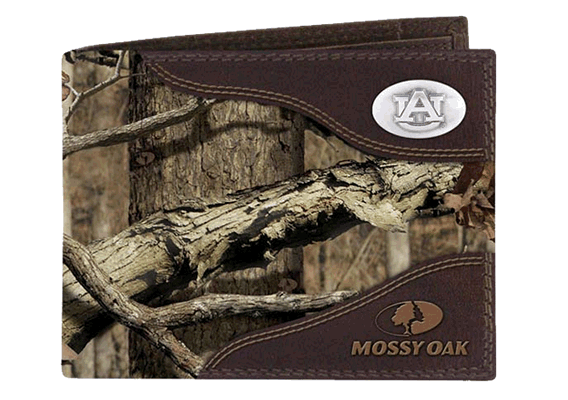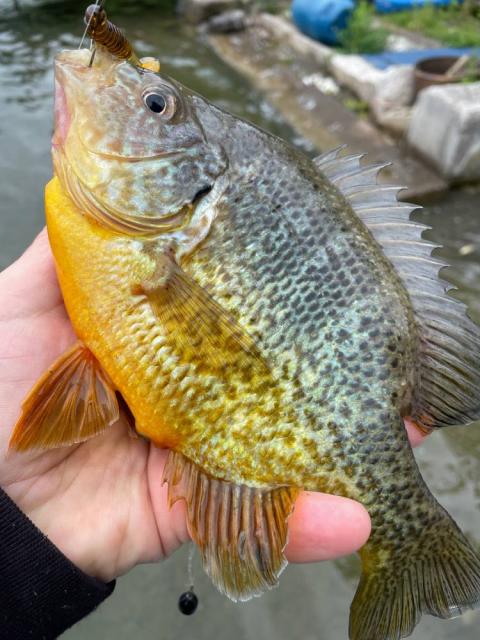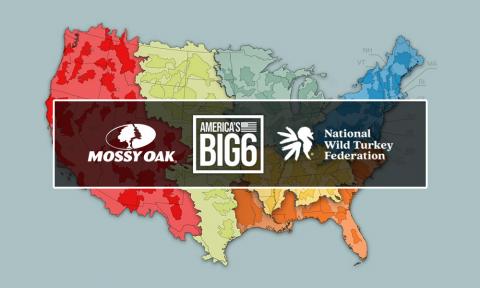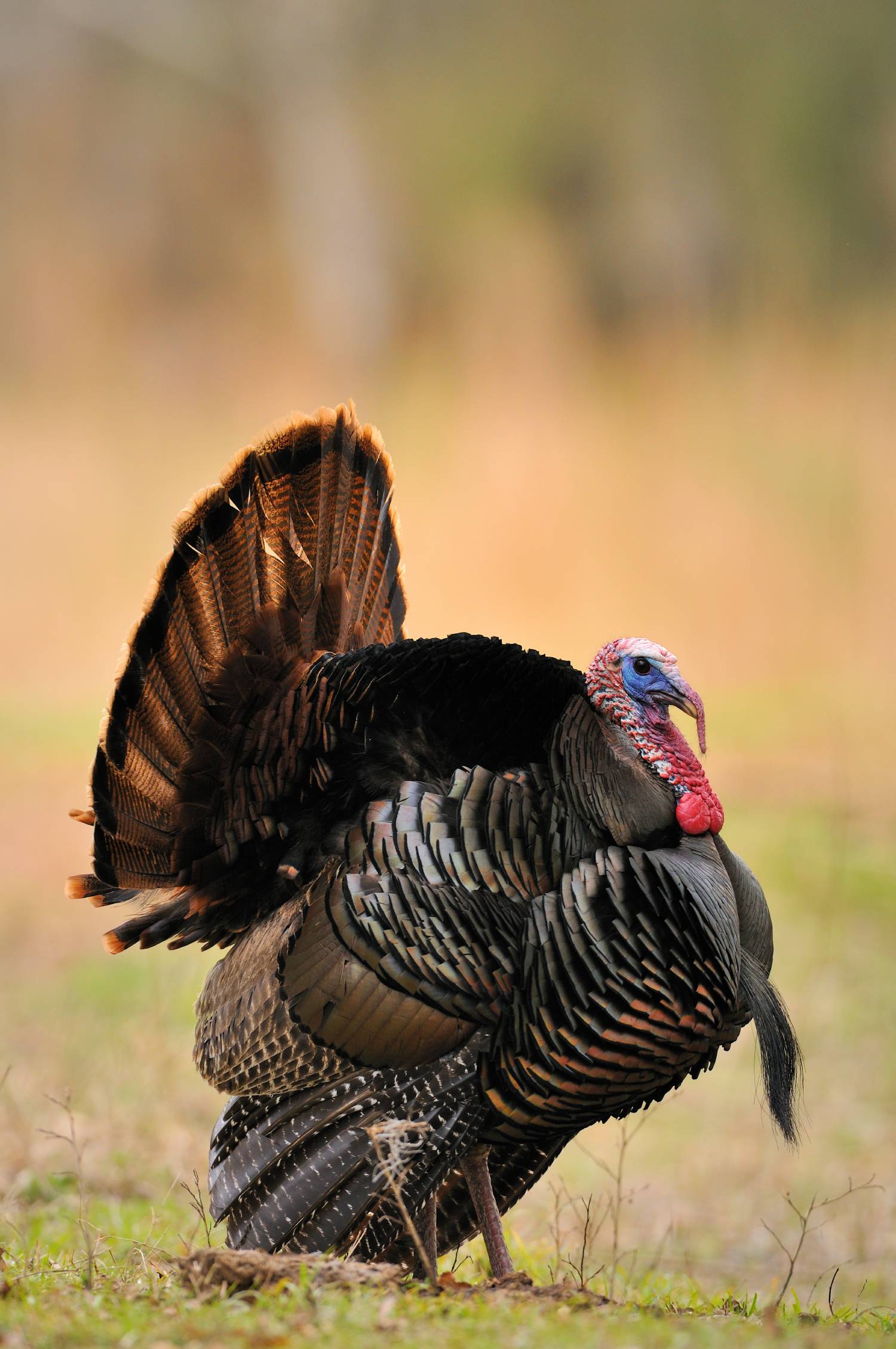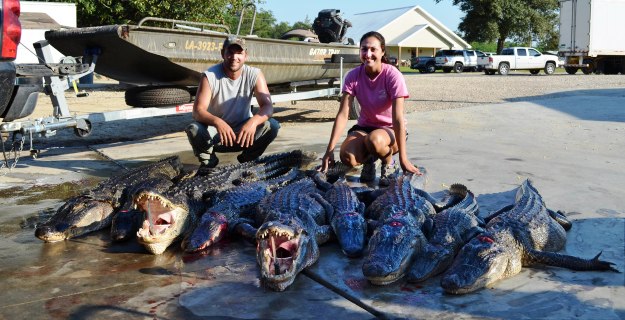
Editor’s Note: Chad Wall and his wife Dana, who are the hosts of “Wallhanger TV” on the Pursuit Channel, live in Springfield, Louisiana, on an alligator farm. The webpage is www.wallhangertv.com and they're on Facebook.
According to Dana Wall, “Since my dad didn’t have any boys, he raised me just like I was one of the boys. But when I started hunting alligators, my parents really had to become accustomed to their girl going out and catching alligators. My mother hated the idea of me being around water, because she always had a fear of water. However, alligator hunting was different for me. I’d always loved the outdoors and loved to hunt. At first, I wasn’t really comfortable being in a little-bitty boat and pulling a 10-foot alligator that was supposed to be dead into the boat with me. I had been around alligators at Chad’s family’s alligator farm, but the farm alligators were usually 6-feet long or less.
“I never will forget the first time I went with Chad, and we pulled an alligator in the boat with us. Even though that alligator was dead, it was still moving around. It took me a while to get used to this. I remember being very alert and looking at that alligator, even though Chad kept reassuring me that the critter was dead. Each time that alligator would move, I was looking for a place to jump out of the boat into the water or out on the bank.
“When Chad originally told me that his granddad had started an alligator farm and that both he and his dad worked at the farm, I thought that was the craziest thing I ever had heard. I didn’t know anybody farmed alligators. After I learned more about it, I realized alligator farming was really neat. Since I had no experience in alligator farming, I was intrigued. The more I learned about it, the more exciting and fun it became, and I fell in love with alligator farming.
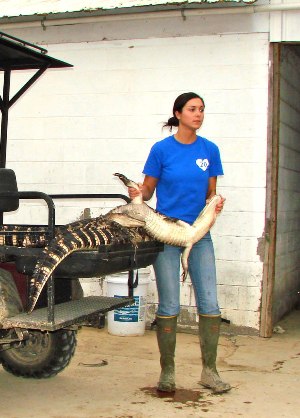 “After Chad and I got married, I started working at the farm – mostly in the office and preparing alligator hide for shipment overseas. I really enjoy helping collect the alligator eggs and helping hatch the baby alligators. One of the most-exciting jobs I have is I get to help collect the eggs from alligator nests in the wild. When we go to a nest in the airboat pushing down trees limbs and branches, often there is a mama alligator protecting the nest. She’s not excited about us taking the eggs out of her nest and back to the farm. We’ve been charged by some mama alligators quite a few times. But because Chad has been gathering eggs from alligator nests most of his life, he’s cool when a 9-, 10-, or 11-foot alligator starts charging us and wanting to fight us.
“After Chad and I got married, I started working at the farm – mostly in the office and preparing alligator hide for shipment overseas. I really enjoy helping collect the alligator eggs and helping hatch the baby alligators. One of the most-exciting jobs I have is I get to help collect the eggs from alligator nests in the wild. When we go to a nest in the airboat pushing down trees limbs and branches, often there is a mama alligator protecting the nest. She’s not excited about us taking the eggs out of her nest and back to the farm. We’ve been charged by some mama alligators quite a few times. But because Chad has been gathering eggs from alligator nests most of his life, he’s cool when a 9-, 10-, or 11-foot alligator starts charging us and wanting to fight us.
“When we see a female guarding a nest, I have a pole on the boat to try and keep the alligator away from me. Plenty of times, when we turn the engine off on the airboat, a mama alligator immediately will have both of her feet and her head over in the front of the boat. The last thing I want is a mean mama gator coming in the boat with me. With my 5-foot pole, I’ll reach out and tap those mama gators on their noses. Most of them will turn around and go away from me, but there are some mama gators determined to get into the boat with you. No matter how-many times you tap them on their noses, they are coming in the boat. When I can’t turn that mama gator away from me, I let Chad take the pole. Chad’s granddad once had an alligator jump in the boat, and he had to climb on top of the cage that protected the propeller on the airboat. He yelled for help, but the alligator got all the way up in the seat of the airboat.
“What many people don’t understand about alligator farming is that only 2 percent of the alligators hatched out of the nest survive in the wild. However, when we take the eggs back to the farm and hatch the baby alligators, we release 14 percent of the hatchlings back into the wild, when they’re big enough to survive on their own. So, alligator farming ensures not only the survival of these animals, but that their numbers increase.”














